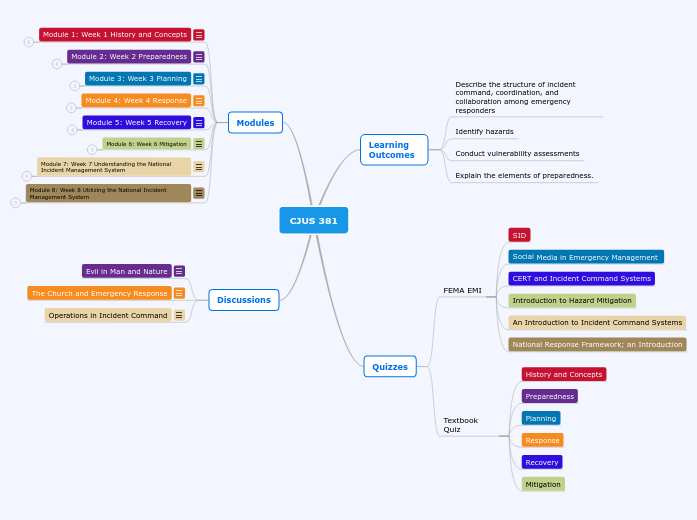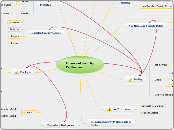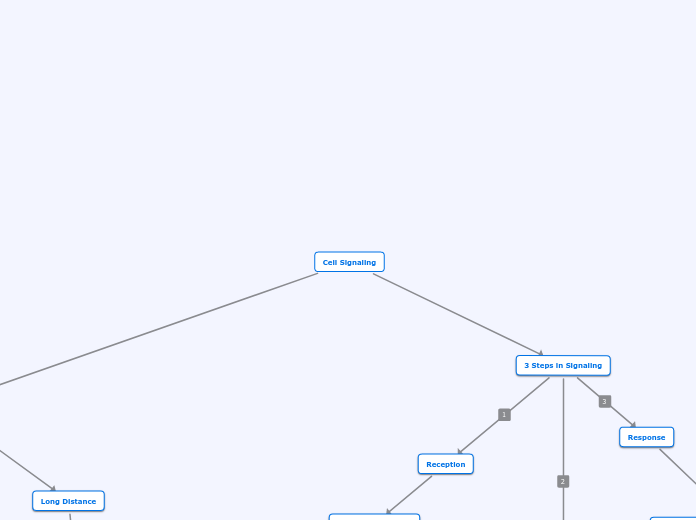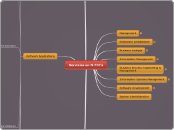CJUS 381
Discussions
Operations in Incident Command
In your own words, describe the Operations Section of an Incident Command and what it is involved with. Do you think it is the most important section of the staff? Why or why not?
The Church and Emergency Response
We see how Paul organized relief efforts for the Church in Jerusalem in his third missionary journey. We also see how organizations like Samaritan's purse use relief efforts as a ministry to those outside the Church. Which is the correct approach for disasters, caring primarily for brothers and sisters in Christ or reaching out to aid all people? Explain your answer.
Evil in Man and Nature
Why are there "natural disasters" (ex. storms, earthquakes, plagues)? Do you agree or disagree with Clough's explanation from the readings over evil in man and nature? Explain your reasons.
Modules
Module 8: Week 8 Utilizing the National Incident Management System
This module will serve as a guide to the application of NIMS. You will learn about the National Response Framework, the Implication of NIMS and NIMS Evaluation and Maintenance.
Describe the National Response Framework.
Summarize the ongoing management and maintenance of the NIMS.
List steps for successful NIMS implementation.
Module 7: Week 7 Understanding the National Incident Management System
This module will serve as an introduction to the National Incident Management System. You will learn of the integration of the incident command system and the areas of command, operations, and planning.
Describe the Operations Section of the General Staff.
Understand command structures.
Identify the characteristics of the Incident Command System.
Explain the concepts and principles of the National Incident Management System.
Module 6: Week 6 Mitigation
In this module you will learn that resilient communities embrace mitigation, defined as a set of strategies to reduce future risks. Two kinds of mitigation are typically pursued: structural and non-structural mitigation. Mitigation planning involves people making decisions about local risks and prioritizing solutions in an economically feasible manner.
Link mitigation to a more resilient community that rebounds from disasters.
Walk through a series of steps in basic mitigation planning.
Discuss the advantages and disadvantages of various kinds of mitigation measures.
Module 5: Week 5 Recovery
In this module you will learn that recovery describes the process of getting people back into permanent housing, work and re-establishing normal routines. It can also be an opportunity to become more resilient. Ideally, recovery planning serves as an opportunity to identify risks and form strategies to reduce those risks.
Describe the community, civic, and voluntary organizations active in disasters.
Outline steps in the process of recovery planning (pre or post)
List and illustrate common recovery challenges
Identify and define various ways to understand recovery
Module 4: Week 4 Response
In this module you will see that emergency managers are more effective when they emphasize coordination and communication instead of command and control. Also included are important aspects of the response phase of a disaster, the common components of response efforts, and the public's response.
Understand the response phase in the context of comprehensive emergency management
Understand the functions of the PIO is a member of the ICS Command Staff.
Identify the most common problems that arise during the response phase and discuss effective principles of emergency management to overcome those challenges.
Module 3: Week 3 Planning
This module shows that plans must assume that unpredictable events will occur, and that improvisation and group emergence will develop to respond. Disaster coordinators must engage all those involved in response as seen with Joseph during the famine in Egypt. An effective planning process is critical to domestic incident management.
Understand the five phases of the NIMS planning process
Explain why evidence-based planning works
Recognize that planning is a process
Module 2: Week 2 Preparedness
In this module you will see disaster preparedness and mitigation are generally low and vary in due to dissimilar access to resources. Therefore, when disasters occur they impact some groups more than others. However, steps can be taken to enhance readiness for disasters as demonstrated by Noah before the Flood.
Understand the preparedness cycle
Identify particular groups that remain at risk due to lack of preparedness and list suggestions for enhancing their readiness
Identify common types of preparedness activities and describe how prepared individuals and households, organizations, and communities are for disasters•
Define preparedness and understand its relationship to response, recovery, and mitigation
Module 1: Week 1 History and Concepts
In this module, you see that emergency managers face both traditional risks such as floods and earthquakes, as well as new risks. Though emergency management deals with managing disasters, no firm definition exists. You will also review the origin of the four phases of emergency management.
Understand the importance of the National Governor’s Association Report and the contributions it made to the profession.
Distinguish among emergency, disaster, and catastrophe
Understand FEMA’s central role in emergency management since 1979
Describe the development of emergency management in the United States and the reasons behind the successes and failures of FEMA during its existence
Quizzes
Textbook Quiz
Mitigation
Recovery
Response
Planning
Preparedness
History and Concepts
FEMA EMI
National Response Framework; an Introduction
An Introduction to Incident Command Systems
Introduction to Hazard Mitigation
CERT and Incident Command Systems
Social Media in Emergency Management
SID
Learning Outcomes
Explain the elements of preparedness.
Conduct vulnerability assessments
Identify hazards
Describe the structure of incident command, coordination, and collaboration among emergency responders









